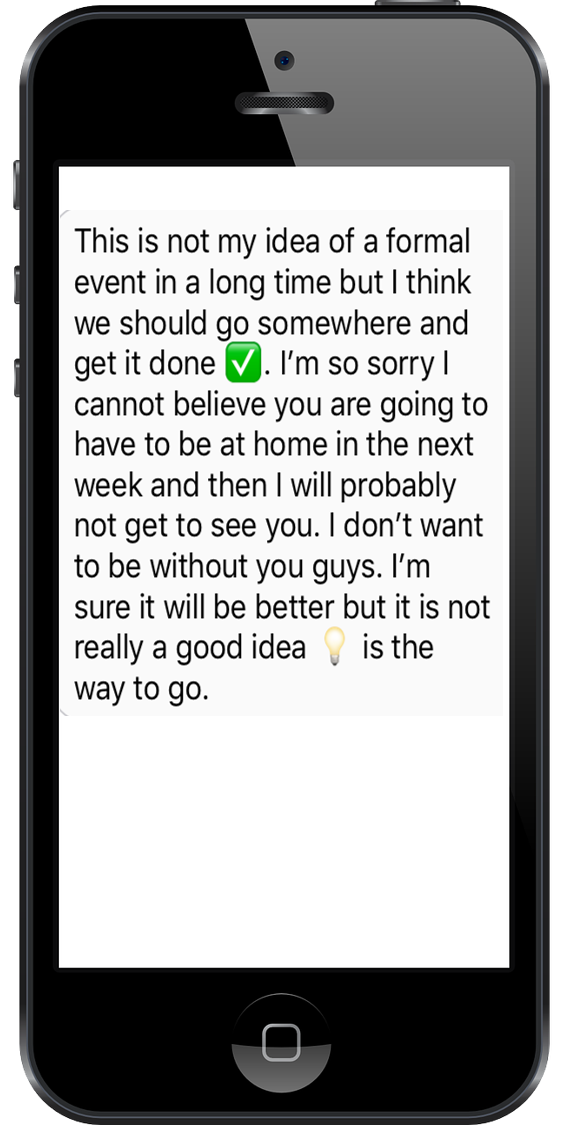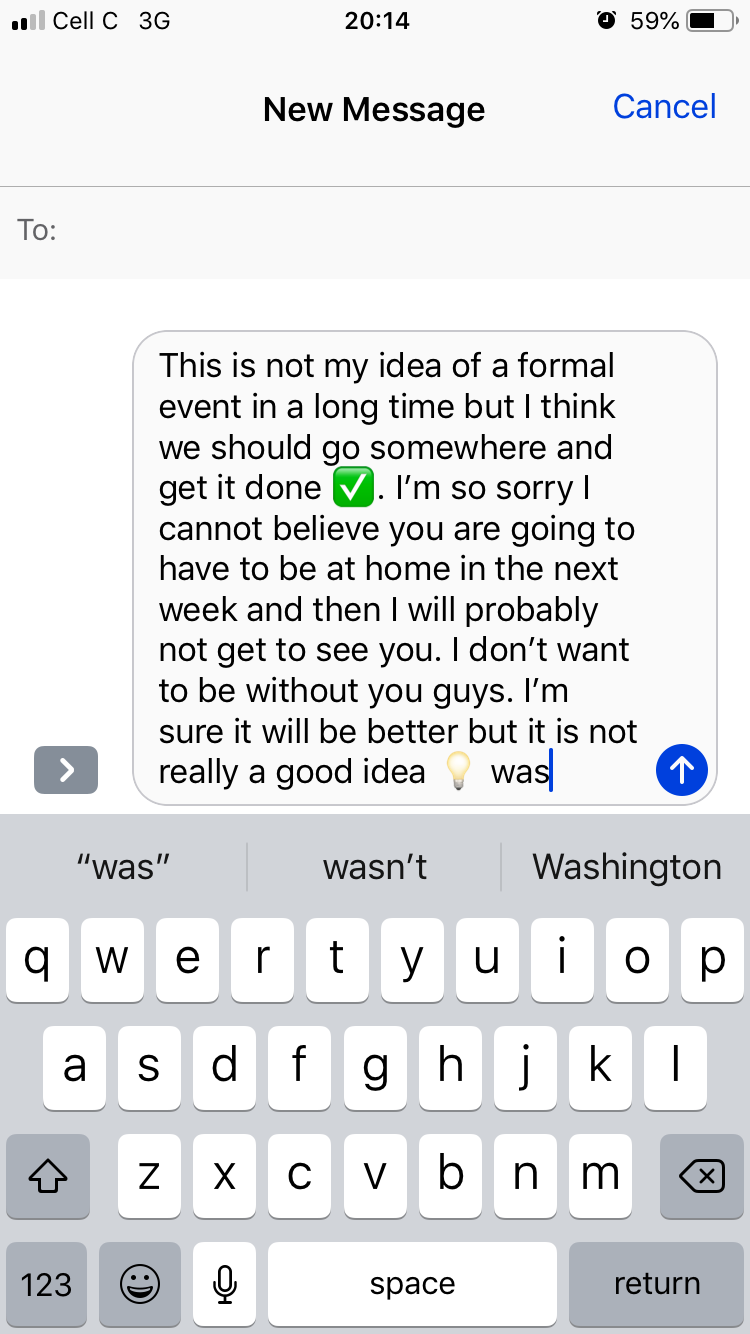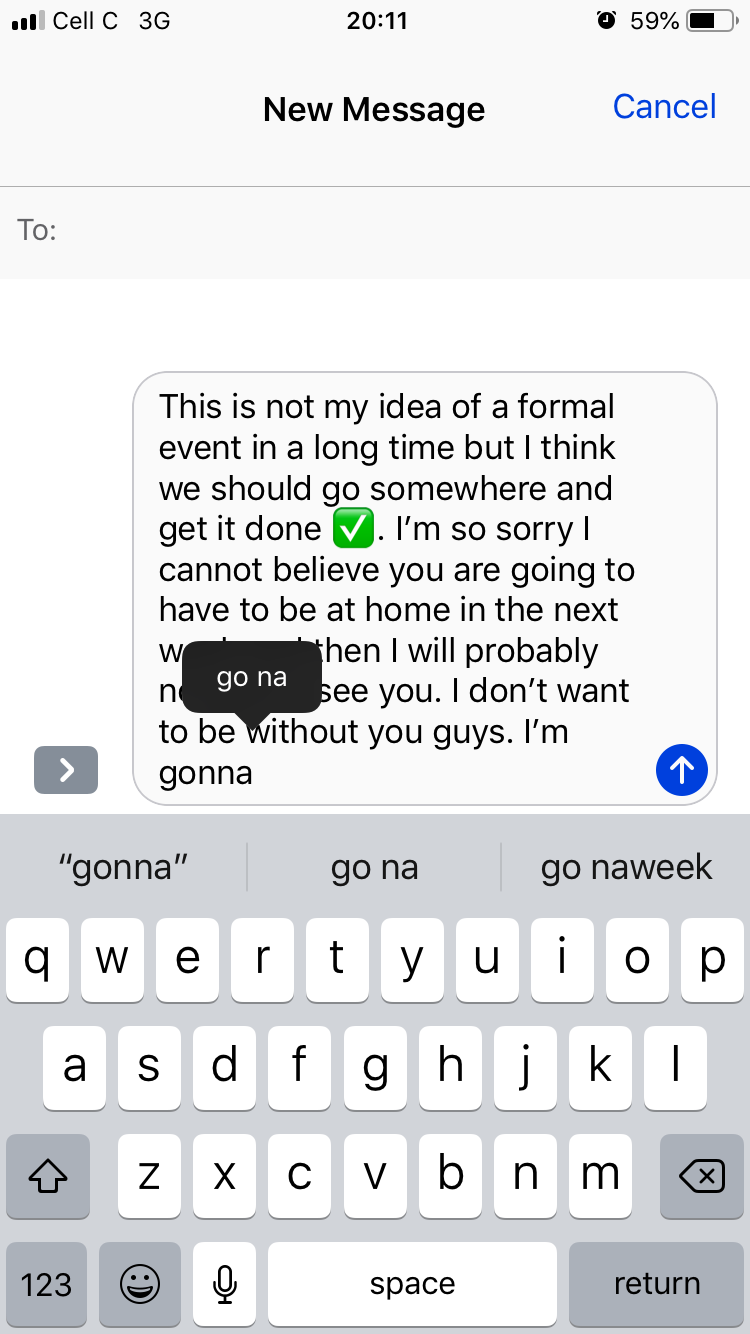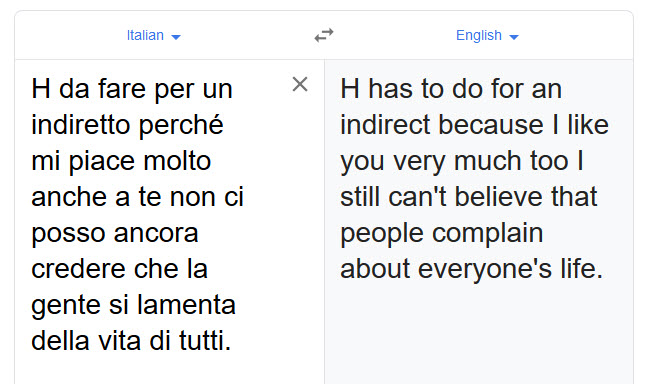
Hmmm… so a little context for the micro-blog above. I was scheduled to get married at the start of April. Alas, that had to be cancelled or hopefully only postponed as a result of the Covid pandemic. In the last few weeks, my partner and I discussed skipping the actual celebrations and just getting the paper work done. This is thus an imaginary message to my parents telling them that I’m sorry that they will miss the hypothetical day (they are not allowed to travel). I didn’t actually intend for the message to be this one though, I really wanted to start by saying that, “this is not my idea of a holiday” but the word holiday didn’t appear as an option with the predictive text. I then just went with the word “formal” and this is the message that flowed out of that initial choice. Even before beginning the task, I was thinking of how different this task might be to the speech to text and manual script tasks. For some reason, I kept on circling back to the idea of how much writing has changed over the centuries. More about that later though…
The entire micro-blog seems clunky in the way it was put together with words being used rather oddly and sentence construction also seeming strange. That is entirely due to the silly options the predictive text offers at times. Just take a look at the screenshot below… I live in South Africa, why on earth would I want to reference Washington? It doesn’t even make any sense in terms of the sentences already constructed in the message.

The micro-blog reads a bit like as if someone with a rather basic grasp of English wrote this message and as such I can’t say I’ve seen similar statements in any other textual products that would be considered mainstream media or even scholarly. It did remind me of the spam emails I get informing me of the millions I’ve inherited but this is probably not the place to get into that. The text is different in several ways from how I would have normally expressed myself, for one- I wouldn’t have typed this message in English but would have used my first language. On that point, I was super excited to see one or two words from my mother tongue be included in the predictive text options. It’s rather funny to think I would go “weekend” after just saying sorry for something in this text. Again, this was a rather silly option provided by the algorithm given the sentences already constructed. Can the algorithm not recognize the contexts in which certain words might be used?

Enough about the message here though and back to considering the changing landscape of written text through the use of algorithms. Where literacy was once a domain for only a privileged few, this kind of predictive text algorithm almost allows anyone to assemble a semi-coherent message in a language they might not even know. To test this theory, I conducted a little experiment. I removed the English keyboard on my phone, added an Italian keyboard and went back to my messaging app and repeated our micro-blog task. This time without knowing what the words were that I was picking. Here is the translated result. Can I declare myself fluent in Italian now? 😀

Probably not… But I do wonder about what affordances are lost when the user has to input less and less of their own thoughts and creativity in the message they are constructing. Isn’t that something that many of us agreed upon when we reflected on the speech to text task- that there was more thought that went into the story and words we wanted to weave together in our stories if we were given the chance to type it vs. just narrating it? Is this a similar situation for predictive text? Not quite, but there does seem to be a similar feeling attached to making use of predictive text. I did feel as if I lost a little of my own voice in this message, I felt limited by the technology in what I wanted to say and how I wanted to express myself.
I don’t like the idea that an algorithm is deciding for me what the message is I am constructing. It feels controlling and steals from me the opportunity to be an individual. Someone somewhere has decided for me that I should be using the word “Washington” in my messages where I probably have only used it a handful of times in my entire life. Where are the words that I would have liked to use? The ones I love and regularly make use of… Until algorithms can be more ethical and less biased towards further privileging those part of the societies that have constructed them will they be of little use to help contribute towards a more equitable society or education system. Their biases (small and large) robs us of our individuality and tries to conform us to some inputted standard. The algorithms are of course not to blame, it is the designers of those algorithms and the data used to construct their biases that reflect the underlying problems still present in our societies.
Hi Carla,
Your comment about spam messages sounding similar to predictive text was interesting! How much of the email spam we receive is auto-generated? Looking at grammar and sentence construction is currently a really good way to spot scam and fraud emails, but what happens as the predictive text gets better? Is this another unintended consequence of unregulated algorithms?
Just popping in to highlight the sentence “Until algorithms can be more ethical and less biased towards further privileging those part of the societies that have constructed them will they be of little use to help contribute towards a more equitable society or education system.” I think this is such a vital takeaway from this task for me!
Great write up, and sorry about the delayed wedding. We just did the paperwork part in Feb and will do the celebration one day, and it’s been quite nice that way actually…